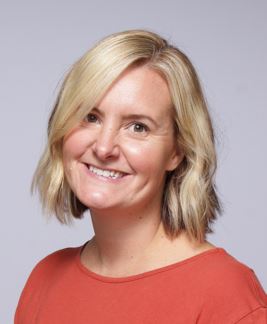Intent
At Martlesham Primary Academy, we believe that RE provides an opportunity to recognise and celebrate differences within our school and the wider world. RE is taught in accordance with the Suffolk Agreed Syllabus (The Emmanuel Project), which was written by Suffolk teachers and members of faith communities. We fully uphold the aim that this is ‘an approach that enables learners to understand what drives people of faith to live the way they do. This builds each child’s religious literacy, helping them understand the nature of religion and belief in the world in which they live. Pupils then have the opportunity to learn from each religious belief taught and put this into practice in their own lives’. The Emmanuel Project provides children with an understanding of a range of religions through their time at Martlesham Primary Academy, supporting them to celebrate diversity and challenge stereotypes.
Implementation
All children are taught RE in weekly, discrete sessions, supporting the children to know more and remember more. Teachers use the long-term planning set out by the MPA curriculum, which ensures progression of skills and knowledge for all. Some classes within the school follow the mixed-age plan whereas others will follow the single-age plan, depending on the cohort sizes and the flexible class structure our school has.
Children are taught through the following process:
1. Engage with the key concept in their own lives/world
2. Enquire into an aspect which related to the key concept
3. Explore an understanding of the key concept through 3 areas
-Text or Narrative
-Community Practice
-Living
4. Evaluate and Express their learning about the key concept
Teachers use the resources available to them from the Emmanuel Project to plan each unit, which provides detailed, yet accessible subject knowledge advice around the key concept being explored. A wide-variety of activities are suggested to support the children’s understanding and ability to make links between different concepts and religions. Learning is adapted to children’s individual needs, enabling all children to access the curriculum.
The Emmanuel Project uses big questions at its centre, allowing children to explore these in a number of different ways. They are also encouraged to ask their own questions throughout each unit. Within each class, a RE scrapbook is created for each unit, demonstrating the learning which has taken place through the unit and capturing the discussions and ideas the children have had within lessons.
Vocabulary has been planned in a progressive way and this is revisited in future weeks, terms and years. The pronunciation of this is modelled by the teacher. Children are encouraged to use the appropriate RE vocabulary when participating in discussions, applying their understanding of the vocabulary to using it in the correct context.
Where possible, cross-curricular links are made, such as Islamic Art considers the features of Islamic Art, including geometric patterns and motifs. This is also considered in the RE Islam unit on tawhid, which explores further what this art represents.
RE physical resources are available to teachers. Where possible, these are used in lessons to support the children’s understanding with a hands-on approach.
Impact
The RE subject lead regularly checks that teaching approaches match the intended curriculum goals for pupils, as well as following the progression of knowledge and skills which are laid out within the Emmanuel Project. The sequencing of lessons supports and promotes progress for all children and teachers check what pupils know in their RE lessons, through teaching, discussion and through feedback.
Teachers assess the children using the Emmanuel Project assessment criteria, identifying whether the children are working towards expectations for their year group, working at or working at greater depth. Evidence will be collated from teacher assessment, the class scrapbook and pupil voice to inform these assessments. This will track the children’s progress against age-related expectations for RE.
In the term where RE is a focus subject (to support workload for subject leaders), the RE subject leader will use a range of methods to evaluate the strengths and development areas, including pupil voice, learning walks and looking at class scrapbooks. They will also identify any CPD needs within RE, which may include team teaching, modelled lessons for teachers or whole teaching staff CPD within a staff meeting.
The subject lead will also analyse assessment data to identify any areas of the RE curriculum which are not as strong within the school and address these in the ways stated above. The RE lead also orders any resources which will support the implementation of the curriculum, and staff can request these also.
Wider and Extra Curricular Opportunities
- Links are made with St Mary’s Church in Martlesham, with a Christmas Carol Service at the church happening each year.
- Different key religious events are celebrated in different years; Diwali has previously been celebrated, as has Chinese New Year.
- Reverend Toby leads assemblies throughout the year at pertinent times linked to the Christian calendar.
- Children in EYFS and KS1 perform a nativity story at Christmas time.
RE Progression Documents
